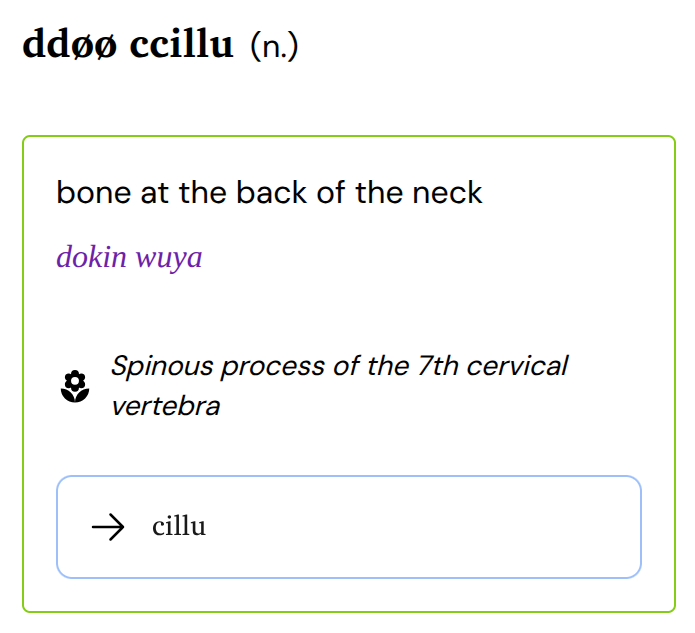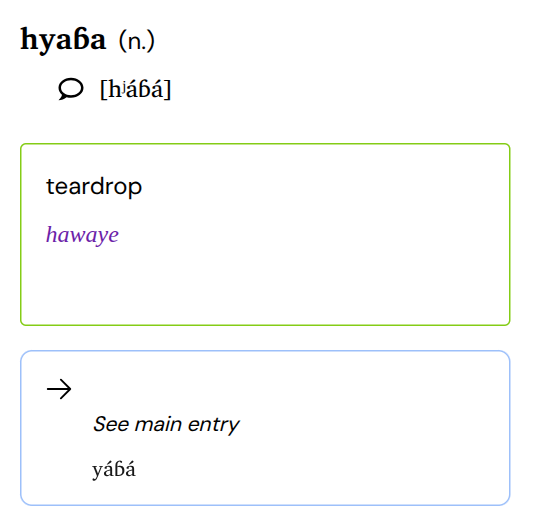Entry details
The format of the dictionary entries is best described through a series of examples. Consider the following entry for the verb cinda 'give':

The headword cinda is written orthographically and is followed by the part of speech (v.) and then a phonetic representation ([tʃĩnda]). A full list of Cicipu parts of speech and affixes are given below.
Parts of Speech
| adjective |
| adverb |
| article |
| associative plural |
| auxiliary verb |
| counterfactual |
| conjunction |
| copula |
| demonstrative |
| exclamation |
| existential predicate |
| greeting |
| honorific |
| ideophone |
| interjection |
| locative |
| noun |
| negator |
| numeral |
| numerical adjective |
| object clitic |
| particle (discourse) |
| possessive pronoun |
| preposition |
| presentative |
| pronoun |
| prohibitive |
| quantifier |
| question word |
| relativiser |
| reportative evidential |
| verb |
Affixes
| anticausative |
| applicative |
| aspect marker |
| causative |
| habitual |
| imperative |
| iterative |
| locativiser |
| nominaliser |
| pluractional |
| resultative |
| tense marker |
| ventive |
Entry structure
Multiple senses of meaning are indicated in boxes with a coloured border e.g. 'wait', 'look after'. For each sense glosses are given in English (wait) and Hausa (jira).

One or more example sentences may appear after the glosses, together with encyclopaedic information and notes on usage if relevant. If the examples have audio then a playbar will be displayed below the relevant example. Most examples have audio for the Hausa translation as well as the Cicipu. A link to the contributor of the example (in this case Markus Yabani) appears at the bottom of the example.

The following screenshot shows a noun ddø̂ø 'horse'. Each noun entry includes both a gender/noun class pairing (8/3) and, where appropriate, the plural form (ìdø̂ø).

The next screenshot shows a subentry of the headword ddøø ccillu as well as a cross-reference to another headword (cillu 'neck').

For identifiable loan words such as kaduniya 'world' the source of the loan is given near the start of the entry (e.g. borrowed from Arabic duniya via Hausa).

Idiolectal or dialectal variants (e.g. hyáɓá 'teardrop') have concise entries, but with a link to the main entry. A similar approach is taken for verbal nouns (e.g. cìdópì 'sewing' appears in the dictionary as a minor entry cross-referenced to the main entry dopo 'sew').

Abbreviations
| Abbreviation | Full |
|---|---|
| esp | especially |
| k.o. | kind of |
| lit | literally |
| pl | plural |
| sg | singular |
| s.o. | someone |
| sp | species |
| s.t. | something |
| viz | namely |